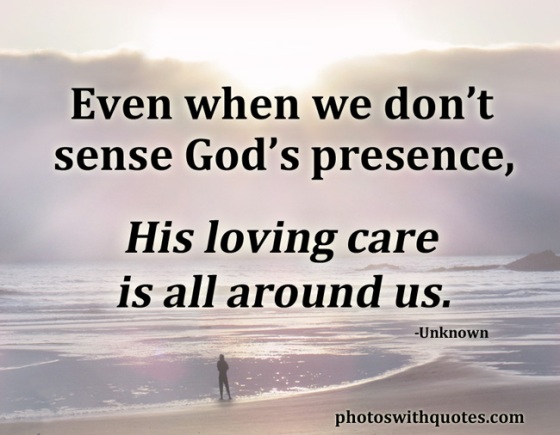April 22, 2015 Earth Day
April 22 Earth day – San Francis – The Canticle of the Creatures" – www.ascoltalibri.it
Earth Day April 22 – I Am The Lord Of The Dance, Cover by Beth Cassidy
Meister Eckhart says, ” Every creature is a Word of God”.
and N.T.Wright says in his new book “Surprised by Scripture,
” The resurrection of Jesus is the reaffirmation of the goodness of creation, and the gift of the Spirit is there to make us the fully human beings we were supposed to be precisely so that we can fulfill that madate at last. What are we waiting for?
Jesus is coming.
Let’s go plant a Tree.

Wednesday April 15 God so loved the world
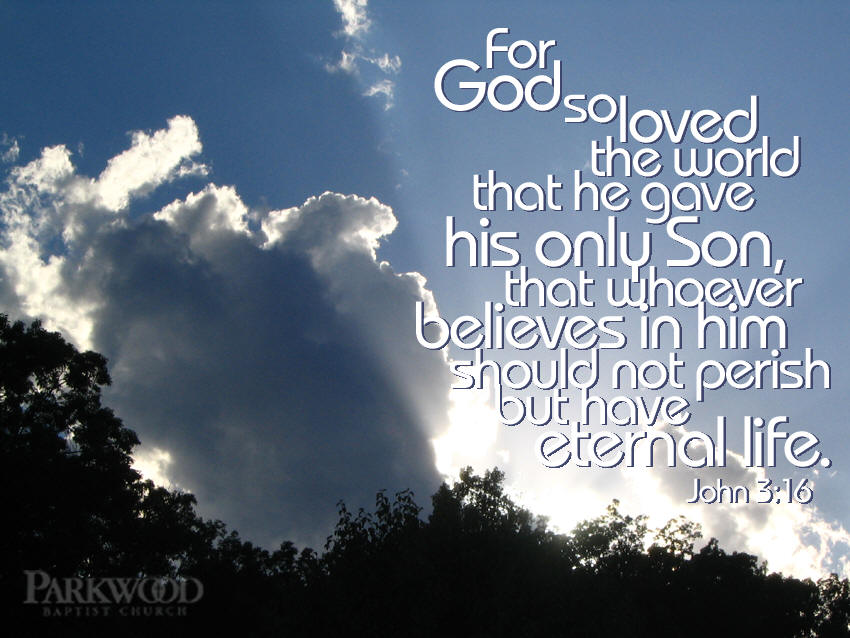
Daily Dig for April 15Søren Kierkegaard
|
||||||||
|
April 14 Tuesday God is all around us.
Even when we don’t sense God’s presence, His loving care is all around us.
|
Eastern Churches Easter Season.
In Jordan, an Easter Vigil for all Catholics |
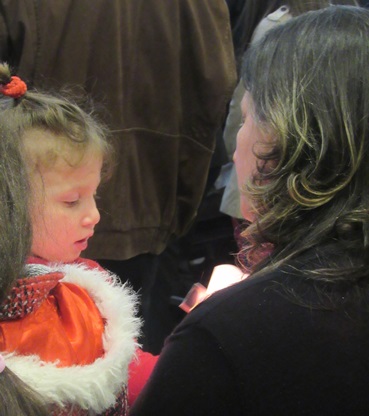
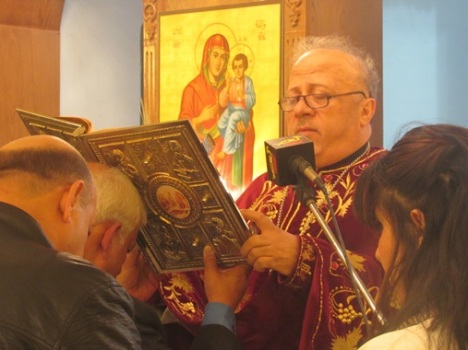
| Comment | See all comments | Like |
|
Unsubscribe to no longer receive posts from CNS Blog.
Change your email settings at Manage Subscriptions. Trouble clicking? Copy and paste this URL into your browser:
https://cnsblog.wordpress.com/2015/04/12/in-jordan-an-easter-vigil-for-all-catholics/ |
| Thanks for flyi |
April 13 – Monday From Oswald Chambers Gospel for today- Unless you are born again. and thoughts from Oswald Chambers
Daily Dig for April 13 |
| Patience is more than endurance.
A saint’s life is in the hands of God like a bow and arrow in the hands of an archer. God is aiming at something the saint cannot see, and he stretches and strains, and every now and again the saint says, “I cannot stand anymore.” God does not heed, he goes on stretching till his purpose is in sight, then he lets fly. Trust yourself in God’s hands. Maintain your relationship to Jesus Christ by the patience of faith. Source: My Utmost for His Highest
Daily Prayer for April 13Christoph Friedrich Blumhardt
|
 |
|
Sunday April 12 – Sunday of Divine Mercy
Daily Dig for April 12
Simone Weil
| I cannot help wondering whether in these days when so large a proportion of humanity is submerged in materialism, God does not want there to be some men and women who have given themselves to him and to Christ and who yet remain outside the church. What frightens me is the church as a social structure. And not only on account of its blemishes. Insofar as the church is merely a social structure, it belongs to the prince of this world… I do not want to be adopted into another circle, another human milieu. I want nothing else but obedience – even unto the cross. That is the true haven, as you know: the cross. Source: Waiting for God Simone Weil was a Jewish person who was drawn to the Catholic Church but never entered it. She loved it from afar. Daily Prayer for April 12Christoph Friedrich Blumhardt
|
 |
Divine Mercy Sunday April 12
Pope: Mercy is “the beating heart of the Gospel”by Cindy Wooden |
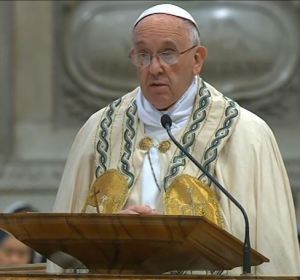
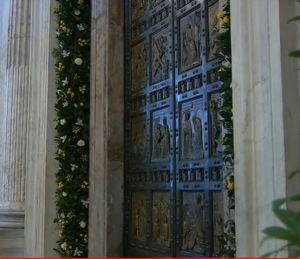
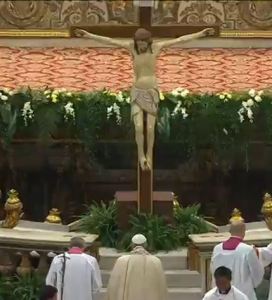
Dear Brothers and Sisters,The greeting of the risen Christ to his disciples on the evening of Easter, “Peace be with you!” (Jn 20:19), continues to resound in us all. Peace, especially during this Easter season, remains the desire of so many people who suffer unprecedented violence of discrimination and death simply because they bear the name “Christian.” Our prayer is all the more intense and becomes a cry for help to the Father, who is rich in mercy, that he may sustain the faith of our many brothers and sisters who are in pain. At the same time, we ask for the grace of the conversion of our own hearts so as to move from indifference to compassion.St. Paul reminds us that we have been saved through the mystery of the death and resurrection of the Lord Jesus. He is the reconciler, who is alive in our midst offering the way to reconciliation with God and with each other. The Apostle recalls that, notwithstanding the difficulties and the sufferings of life, the hope of salvation which Christ has sown in our hearts nonetheless continues to grow. The mercy of God is poured out upon us, making us just and giving us peace.Many question in their hearts: Why a Jubilee of Mercy today? Simply because the church, in this time of great historical change, is called to offer more evident signs of God’s presence and closeness. This is not the time to be distracted; on the contrary, we need to be vigilant and to reawaken in ourselves the capacity to see what is essential. This is a time for the church to rediscover the meaning of the mission entrusted to her by the Lord on the day of Easter: to be a sign and an instrument of the Father’s mercy (cf. Jn 20:21-23). For this reason, the Holy Year must keep alive the desire to know how to welcome the numerous signs of the tenderness which God offers to the whole world and, above all, to those who suffer, who are alone and abandoned, without hope of being pardoned or feeling the Father’s love. A Holy Year to experience strongly within ourselves the joy of having been found by Jesus, the Good Shepherd who has come in search of us because we were lost. A Jubilee to receive the warmth of his love when he bears us upon his shoulders and brings us back to the Father’s house. A year in which to be touched by the Lord Jesus and to be transformed by his mercy, so that we may become witnesses to mercy. Here, then, is the reason for the Jubilee: because this is the time for mercy. It is the favorable time to heal wounds, a time not to be weary of meeting all those who are waiting to see and to touch with their hands the signs of the closeness of God, a time to offer everyone the way of forgiveness and reconciliation.May the Mother of God open our eyes, so that we may comprehend the task to which we have been called; and may she obtain for us the grace to experience this Jubilee of Mercy as faithful and fruitful witnesses of Christ.
Easter Saturday April 11. Sunday Gospel Thomas and the Risen Lord
Resurrection life dwells—abides—in us. Rob Bell says that “Resurrection means God has not given up on the world because this world matters”:
This world of dirt and blood and sweat and skin and light and water. This world that God is redeeming and restoring and renewing. Greed and violence and abuse—they are not right—and they cannot last. They belong to death and death does not belong.
Resurrection says that what we do with our lives matters…in this body the one that we inhabit right now. Every act of compassion matters. Every work of art that celebrates the good and the true matters. Every fair and honest act of business and trade. Every kind word. They all belong and they will all go on in God’s good world. Nothing will be forgotten. Nothing will be wasted.
Jesus expects us to have faith amid the darkness. As Christ pulled the hand of Thomas toward his sacred, transfigured wounds, he said to him “Put your finger here, and look at my hands. Put your hand into the wound in my side. Don’t be faithless any longer. But believe!”
“My Lord and my God!” Thomas exclaimed. Then Jesus tells him, “You believe because you have seen me. Blessed are those who believe without seeing me.”
John Updike, a contemporary American writer, was one of those who, like us, never saw the resurrected Christ for himself and yet he believed.
In 1960, as a young man, he entered a poetry contest at a Methodist church in Massachusetts. He won the prize: $100. And he gave the money back to the church, but the real miracle is the poem itself, “Seven Stanzas at Easter”:
Make no mistake: if He rose at all
it was as His body;
if the cells’ dissolution did not reverse, the molecules
reknit, the amino acids rekindle,
the Church will fall.
It was not as the flowers,
each soft Spring recurrent;
it was not as His Spirit in the mouths and fuddled
eyes of the eleven apostles;
it was as His flesh: ours.
The same hinged thumbs and toes,
the same valved heart
that–pierced–died, withered, paused, and then
regathered out of enduring Might
new strength to enclose.
Let us not mock God with metaphor,
analogy, sidestepping, transcendence;
making of the event a parable, a sign painted in the
faded credulity of earlier ages:
let us walk through the door.The stone is rolled back, not papier-mâché,
not a stone in a story,
but the vast rock of materiality that in the slow
grinding of time will eclipse for each of us
the wide light of day.
And if we will have an angel at the tomb,
make it a real angel,
weighty with Max Planck’s quanta, vivid with hair,
opaque in the dawn light, robed in real linen
spun on a definite loom.
Let us not seek to make it less monstrous,
for our own convenience, our own sense of beauty,
lest, awakened in one unthinkable hour, we are
embarrassed by the miracle,
and crushed by remonstrance.
Now that’s a description of Easter. It’s material and it’s supernatural all at once.
And so, with Updike and with the Magdalene, through tears—even as we suffer and rejoice and believe and expect a miracle in this space between Holy Saturday and Easter—we find ourselves once again on the road to Bethany and, with Martha, we encounter Jesus, and we hear the words of the Teacher:
“I am the resurrection and the life. Anyone who believes in me will live, even after dying. Everyone who lives in me and believes in me will never ever die. Do you believe this?”
Read more: http://www.patheos.com/blogs/imagochristi/2015/04/keeping-it-real-an-easter-sermon/#ixzz3X0bK8kMq



